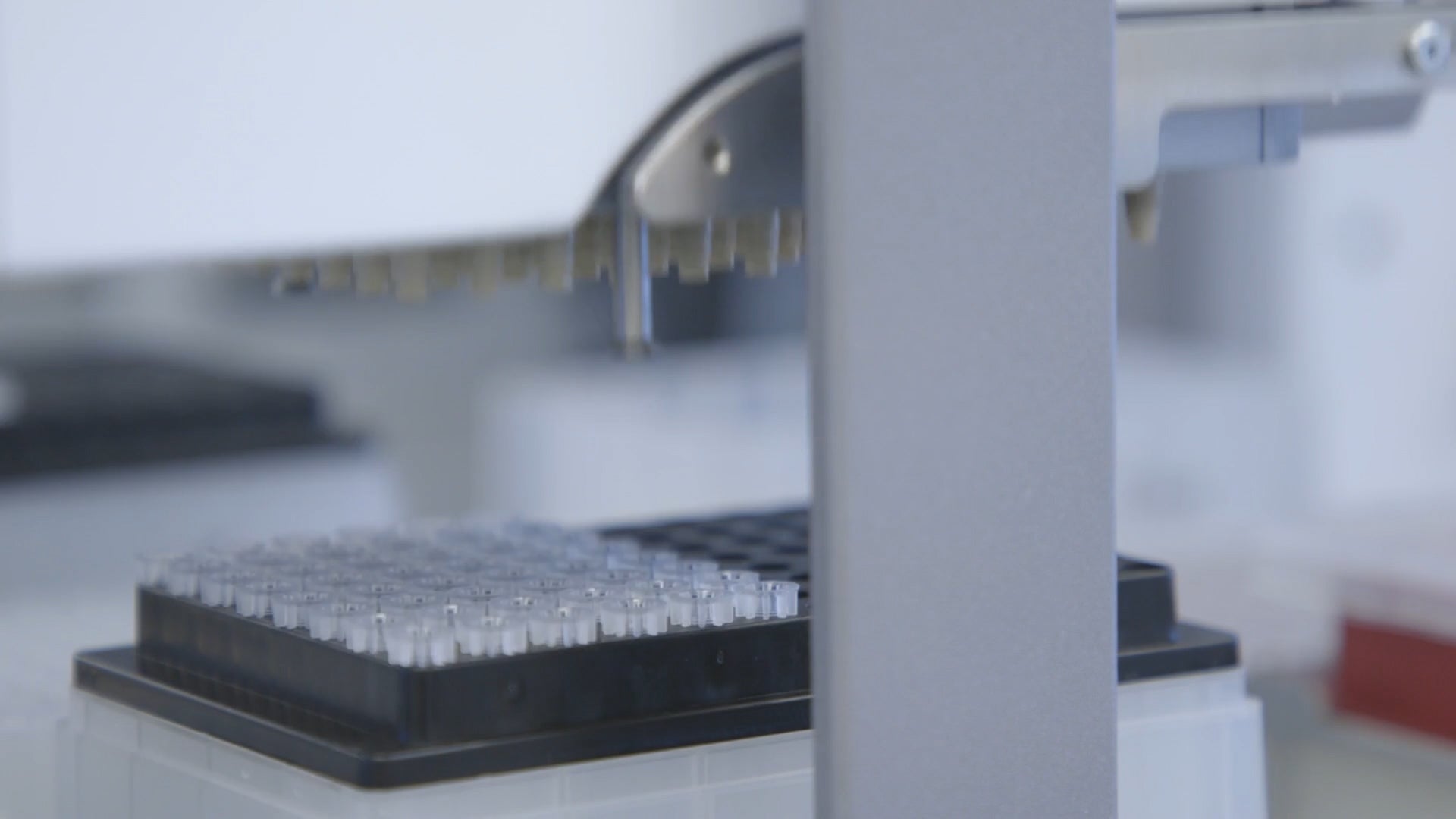Learning through osmosis – Training the next generation of genome scientists
When the first complete genetic blueprint for human beings was completed in 2003, the door opened to major advances in the fields of medicine, biotechnology and the life sciences.
Students from the University of Waterloo contributed to this ground-breaking project and continue to make profound scientific contributions through co-op work terms at The Centre for Applied Genomics (TGAC). TCAG, affiliated with the Hospital for Sick Children in Toronto, provides co-op students with training in relevant laboratory and analytical techniques.
“There are so many examples of significant impacts that Waterloo students have had on our work,” says Richard Wintle, assistant director of TGAG. “We've had students work on new machine learning methods for understanding the human genome. We've had students verifying and validating findings in our autism genomic study. We've even had students stretching all the way back into the early years of the Human Genome Project, working on the annotation of human chromosome seven, and many of these have resulted in high impact publications and real advancements in the field.”
These exceptional co-op work experiences have led to TCAG being named the first-ever winner of the Impact in Research award. This accolade is part of the University of Waterloo Co-operative and Experiential Education (CEE) Employer Impact Awards.
“As director of the Work-Learn Institute, I’m excited to see an employer like the Centre for Applied Genomics provide such rich and purposeful research programs for Waterloo students – especially ones that include student contributions to research papers and academic journals,” says Judene Pretti. “Through these work experiences and opportunities, our students get to mobilize knowledge that will shape them into research professionals with global impact.”
“We’re very pleased to be able to contribute to improving and enhancing the number of genome scientists in Canada,” says Wintle. He says the skills they learn are critical to success in the field of genomics in both the public and private sectors.

TGAC, which consistently hires Waterloo co-op students and alumni, encourages student involvement in academic journals and publications to share and highlight their work and discoveries.
“Waterloo students help us to be more future-proof in that we can use the program to identify students who might be good employees later,” says Wintle. “Of course, many of these students go on to have their own successful medical or research careers and some of them become long-term collaborators at our Centre.”
Students are offered a vibrant, productive genome community with mentorship and support from highly experienced research experts, informatics teams, lab personnel, genomics analysts and PhD and co-op students from other institutions.
“We strongly believe that important work needs to be acknowledged appropriately,” says Wintle. “One way we can do that is by making sure that our students are offered co-authorship on papers where they’ve contributed significantly to the work that’s being reported. It’s also very important for their own development, because co-authorship on an important paper is really a good way to demonstrate employers or future graduate supervisors that they’ve done some really good work.”
Thanuja Selvanayagam, a Waterloo Biochemistry graduate, was happy to be able to contribute to a research publication and understand the process that goes into it.
“It’s pretty rare to get that experience as an undergraduate student,” says Selvanayagam, who had two four-month work terms and one eight-month work term with TGAC.
Like Selvanayagam, Charley Phillips, a Biomedical Engineering graduate, says the opportunity to research is a strong stepping-stone to future work and endeavours.
“It was really good learning experience for me to see just how much proof you need to bolster everything you write in a research paper, and addressing reviewer comments,” says Phillips. “(It’s) a valuable skill that I was not aware I even needed to have until I worked through that process.”
Mentorship is key
Mentorship plays a big role in the TGAC co-op program, Wintle explains, as students are paired with senior employees including postdoctoral fellows or technicians in the lab.
“Typically, the students are always surrounded by people with a lot of different skills,” Wintle says. “One of the things I always tell students when they start here is that they should try and be a sponge and of course contribute to what we do, but also try and be a little bit selfish because there’s a lot of expertise around them, and they should try and take as much of that with them as they possibly can.”
“You can’t really avoid learning something by osmosis when you’re with us at TCAG.”